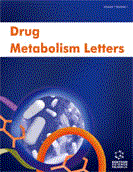Abstract
Studies on the cellular disposition of targeted anticancer tyrosine kinases inhibitors (TKIs) have mostly focused on imatinib while the functional importance of P-glycoprotein (Pgp) the gene product of MDR1 remains controversial for more recent TKIs. By using RNA interference-mediated knockdown of MDR1, we have investigated and compared the specific functional consequence of Pgp on the cellular disposition of the major clinically in use TKIs imatinib, dasatinib, nilotinib, sunitinib and sorafenib. siRNA-mediated knockdown in K562/Dox cell lines provides a unique opportunity to dissect the specific contribution of Pgp to TKIs intracellular disposition. In these conditions, abrogating specifically Pgp-mediated efflux in vitro revealed the remarkable and statistically significant cellular accumulation of imatinib (difference in cellular levels between Pgp-expressing and silenced cells, at high and low incubation concentration, respectively: 6.1 and 6.6), dasatinib (4.9 and 5.6), sunitinib (3.7 and 7.3) and sorafenib (1.2 and 1.4)), confirming that these TKIs are all substrates of Pgp. By contrast, no statistically significant difference in cellular disposition of nilotinib was observed as a result of MDR1 expression silencing (differences: 1.1 and 1.5), indicating that differential expression and/or function of Pgp is unlikely to affect nilotinib cellular disposition. This study enables for the first time a direct estimation of the specific contribution of one transporter among the various efflux and influx carriers involved in the cellular trafficking of these major TKIs in vitro. Knowledge on the distinct functional consequence of Pgp expression for these various TKIs cellular distribution is necessary to better appreciate the efficacy, toxicity, and potential drug-drug interactions of TKIs with other classes of therapeutic agents, at the systemic, tissular and cellular levels.
Keywords: Anticancer targeted therapy, Tyrosine kinases inhibitors, TKI, P-glycoprotein, P-gp, Multiple Drug Resistance, MDR1, ABCB1, siRNA-mediated knockdown, siRNA
 10
10










